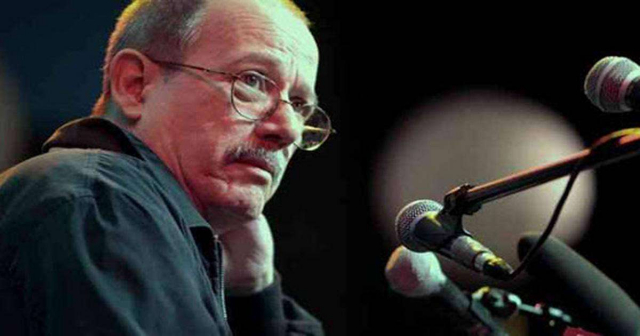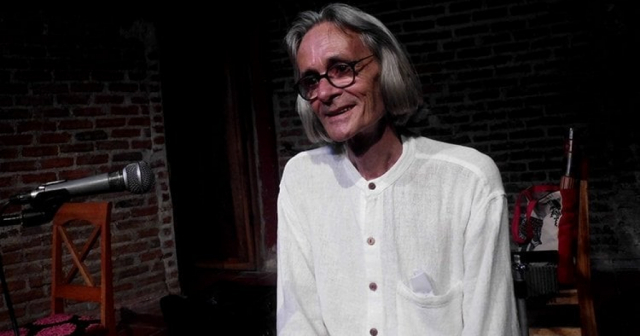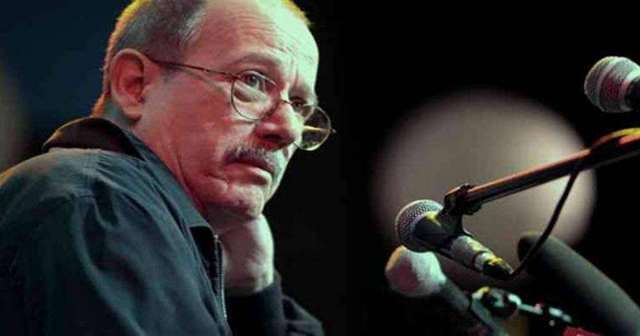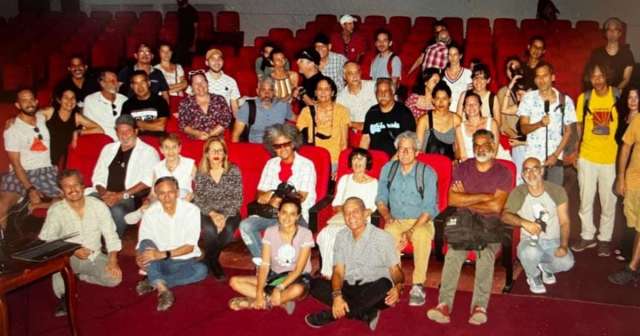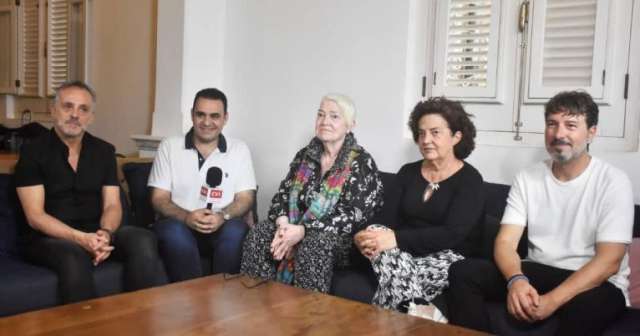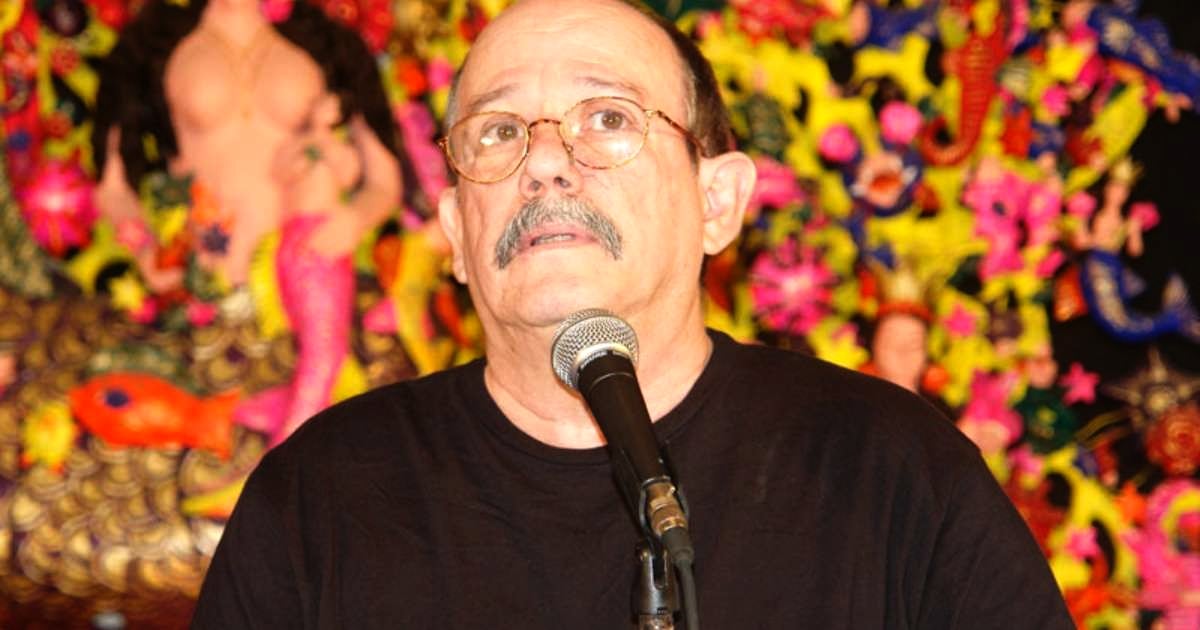
As he prepares to release his twenty-second album, the Cuban singer-songwriter and founder of the Nueva Trova movement, Silvio Rodríguez, gave an interview to the EFE news agency in which he expressed his desire that "the future of Cuba does not remain in the hands of the US government."
In addition to explaining the creative process that led him to the production table of his new album 'Quería saber', the troubadour referred to the present situation in Cuba with his usual dose of restraint in his criticism, and nostalgia for a “revolution” that brought about the consolidation of a totalitarian regime in Cuba and that, nonetheless, he still upholds.
Apparently concerned about the future of the Cuban nation, as well as about the strength and legitimacy of the government of the so-called "continuity" and its chaotic economic and social policies, the musician expressed his hope that "the future of the Cuba of José Martí does not end up in the pocket of the American government."
At 78 years old, Silvio remains active in music with a new album that features eleven songs composed between 2015 and 2019. "‘Quería saber’ is the continuity that I have; the songs I chose to bring together on this occasion," the singer-songwriter told the Spanish agency.
According to the mentioned agency, the album is a mix of intimate and social lyrics, with songs richly instrumented and others reduced to their minimal essence.
Among the songs, one that stands out is "Para no botar el sofá," an "editorial song" that addresses issues such as massive migration, homophobia, and censorship. Rodríguez expressed: "I refer to things that hinder us, that hinder us, that instead of liberating us tie us, complicate us." Additionally, he closed this song, and others like "La cuota diaria," with a message of hope and optimism, advocating for "counting on each other" and overcoming challenges.
The singer-songwriter also reflected on his creative process and the impact of the pandemic on his life and career. During the pandemic "break," he took the opportunity to discover many things he had postponed. He also remembered his fellow nueva trova companion, Pablo Milanés, who passed away in 2022, describing him as "irreplaceable" due to his exceptional musicality and talent.
Other "lashes" from Silvio to the government of the "continuity" of Miguel Diaz-Canel
Known for his unmistakable voice and poetry, this icon of the new Cuban trova maintains and defends his multidimensional and contradictory image, capable of being both a critic and a staunch defender of the Cuban regime.
"I understand the young people who leave. You only live once, and the situation in Cuba is quite difficult. We are experiencing a generational turnover under the pressure of a siege," said the singer-songwriter in late March, in statements collected by El Español.
In his opinion, "Cuba's highest achievements, such as schools, continue to function with many difficulties; hospitals also operate, although with fewer staff, resources, and medications."
In that context, the musician and deputy of the National Assembly seemed to find logic in the abandonment of the country, in the migration crisis that the Cuban people are experiencing.
"It is the situation we are experiencing after the recession caused by the pandemic, now worsened by two wars. It should not be forgotten that Cuba is burdened by very unfair imperial sanctions," Rodríguez said, aligning himself with the usual discourse of the regime which blames the economic embargo imposed by the United States for the problems in the country.
In March 2023, the troubadour stated that the Cuban regime needed "a change in mentality" and to "lose the fear" of economic models that can guarantee the collective well-being.
"The changes we need are mindset shift. We must lose the fear," he said in a comment on the publication of an article by Fidel Vascós González about socialism on his blog Segunda Cita.
Silvio explained that "we are in the most difficult stage of the so-called revolutionary period," with a notable loss of "trust and faith like never before." He added that "in communication, we have not managed to live up to what a historical situation like this requires. This happens because mentalities are still operating in an outdated manner."
To be truly revolutionary, one must know how to prioritize the collective well-being over the security of a group or social condition. "The people are not fools," he emphasized.
At the end of August 2022, amid an energy crisis and a worsening of blackouts in Cuba (a situation similar to what is currently being experienced), the singer-songwriter warned that "the people would end up confronting the government" if citizen protests continue to be repressed in Cuba.
"I believe that our government is making a serious mistake by preventing the people from taking relieving actions. This contradiction will have to be resolved, or the people will end up confronting the government," Rodríguez wrote in his blog.
His statements came a day after Cuban ruler Miguel Díaz-Canel, in a speech about the energy crisis facing the country, called the Cubans protesting due to the long blackouts "indecent."
"He is going through so much anguish, and it is so annoying what we could do and don't do, that the temptation to blame the government for everything is latent... I defend everyone's right to express themselves and say what they feel," concluded the author of Ojalá.
What do you think?
COMMENTFiled under:

